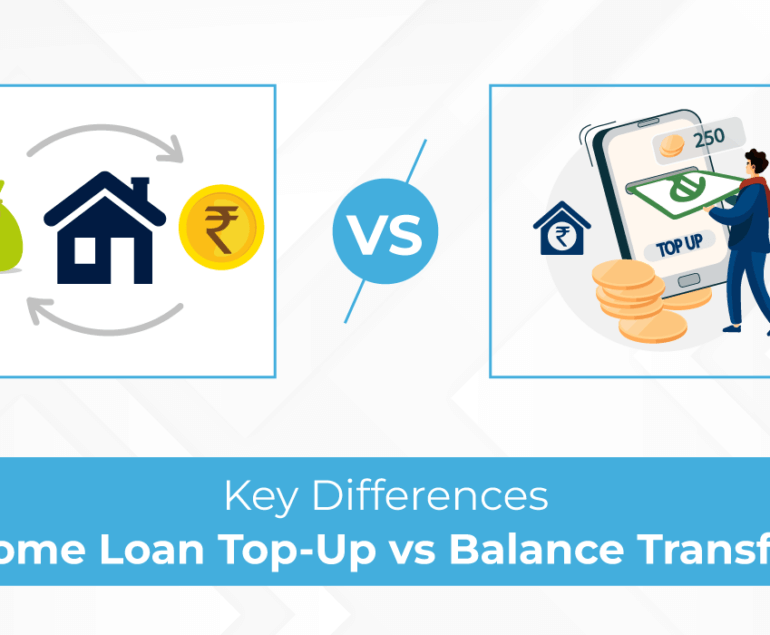It is important to have a good credit score to buy a home because it shows how you handle debt. Credit scores can help you qualify for lower mortgage interest rates, simplifying and reducing costs.
The terms credit reports, credit bureaus, etc., are fundamental to maintaining good credit scores for home loans. In addition, you will better understand your credit score, what it is, and how you can increase it to qualify for a home loan quickly. This post covers all of them.
Your credit score is a critical factor in securing a Home Loan.
Our team of experts can help you understand your credit score.
A] How does your credit score affect your chances of getting a home loan?
Getting a home loan is mainly dependent on your credit score. The ability to repay the loan is one of the major criteria upon which a bank determines whether or not to approve a home loan application. You must know that the bank will check your credit score and history as soon as you submit your completed home loan application.
Several factors, including the applicant’s credit score, are considered during the approval process.
B] Determining a Good/Qualifying Credit Score
The way lenders determine your credit score might be of interest to you before we discuss the credit score you need to qualify.
Usually, lenders use the middle or median credit score you receive from major credit bureaus when you apply for a loan on your own.
Generally, the lowest median score among all mortgage clients is considered the qualifying score when there are two or more borrowers. A loan’s median score is computed by averaging the scores of all borrowers on loan.
An average credit score of 650 would be calculated based on an average of 580 and 720 for the co-borrower. It can make a difference in whether you qualify for a conventional loan if your credit score is below 620.
However, if you are interested in finding out how to procure a home loan on low cibil scores, you can refer to our guide: How Do You Get a Home Loan With a Low CIBIL Score?
It is important to remember that to calculate your rate and mortgage insurance. Low median scores are used so that you may have a slightly higher rate.
C] Factors Considered while Calculating a Credit Score
The following factors can affect your credit score:
1. Repayment History
It is primarily determined by how promptly you have repaid your debts in the past, which determines your credit score. Any default on credit cards or loans will negatively impact your credit score. Unpaid bills negatively affect your credit score the longer they remain unpaid and the more frequently they occur.
Your repayment history largely determines your credit score.
2. Number of Credit Inquiries
If you apply for a new credit line, the lender will check your credit report. This is known as a hard inquiry. It determines whether your loan is sanctioned by assessing your repayment capacity.
When you apply for credit with multiple institutions, it suggests that you are credit hungry. As every lender is concerned with obtaining funds returned on time, aggressively applying for credit from too many lenders gives the impression that you might have difficulty paying back your loan.
3. Length of Credit History
Banks keep credit histories in a detailed format. Potential lenders can obtain a detailed report on your credit history the first time you are approved for credit. It is possible to get a credit history more easily if it is long and positive.
D] Required Credit Score for a Home Loan
To qualify for a home loan, no universal minimum cibil score for home loan is required. Each bank has a cut-off point for whether an application is accepted or rejected. Generally, when applying for a home loan in Mumbai, it is advisable to have a credit score of 750 or higher, also known as a CIBIL score, which indicates good credit.
E] What is the impact of your credit score on your home loan?
A borrower’s credit score impacts their application for a home loan in several ways. A credit score identifies a person’s creditworthiness, determining their eligibility for an offering. As a result, your credit score is heavily dependent on the history of your loan repayments, credit card claims, and other forms of credit.
The credit score is also a critical component of the eligibility criteria, and most lenders require an average credit score of at least 750 before considering you for a loan.
Additionally, maintaining a good cibil score for home loan when applying for a home loan helps you to get approval more quickly. To qualify for a mortgage loan, you need to meet certain criteria, and using a calculator does not guarantee approval.
Applicants who cannot meet the minimum credit score for home loan applications may have their applications rejected or have to pay a higher interest rate for their loans. CIBIL scores are one of the most important factors determining the approval or denial of an application for a loan.
Finally, you can get a better loan deal by having a high CIBIL score. A good credit score of at least 750 entitles you to special loan offers. When you have a CIBIL score to complement your home loan, you can use them to your advantage.
F] Tips to Improve Your Credit Score for Home Loan
To get pre-approval for your home loan application, you can do a few things to improve your credit score.
1. Consolidate your Debts
If you have multiple bills to pay monthly, consider consolidating them. Most banks offer credit cards with balance transfer features. This feature allows you to pay off all your other credit cards on time by transferring the outstanding balances onto this card. Find out if your credit card has this feature by contacting your bank.
2. Monitor your Credit Report
Check your credit report regularly. The National Credit Bureau offers an online portal to view your credit report. Keeping an eye on your credit report frequently can help you improve it without delay if you know what’s hurting it.
3. Lower Credit Usage
Credit utilisation is a portion of your total credit limit to meet your financial obligations. After keeping track of your credit report and paying your bills on time, this is the next step you should take. With your outstanding monthly debt, don’t exceed 30 percent of your credit limit. As a result, you can improve your credit score effectively.
4. Credit Enquiries
It is commonly known that the number of credit inquiries you make also affects your credit score. Instead of calling your preferred bank, you can ask credit-related questions via its online portals. The result is that your credit score is elevated while your credit inquiries are minimised.
G] FAQs
1. Is there a way to improve my credit score for home loans?
While applying for a home loan, lenders usually check one’s credit score and use the information and policies to determine loan eligibility.
The following are some tips for improving your credit score:
- Build a strong credit file.
- Pay your bills on time.
- Don’t let your accounts fall behind.
2. What credit score should I have to get a home loan?
A score between 650 and 749 is considered good, and lenders may offer you a home loan after inquiring about your other financial details. However, lenders usually consider 650 as the minimum CIBIL score for home loan.
3. Does a home loan require a minimum credit score?
The lenders usually consider 650 as the minimum credit score required for a home loan.
4. How can I check my credit score?
Each nationwide credit bureau offers free copies of your credit reports every 12 months through www.annualcreditreport.com. Additionally, Equifax offers six free credit reports yearly to myEquifax account holders.
Our FAQs should help you resolve your queries about credit scores with respect to home loans. However, if you have any additional questions, you can get in touch with our loan agents in Mumbai, we’ll get you sorted.




